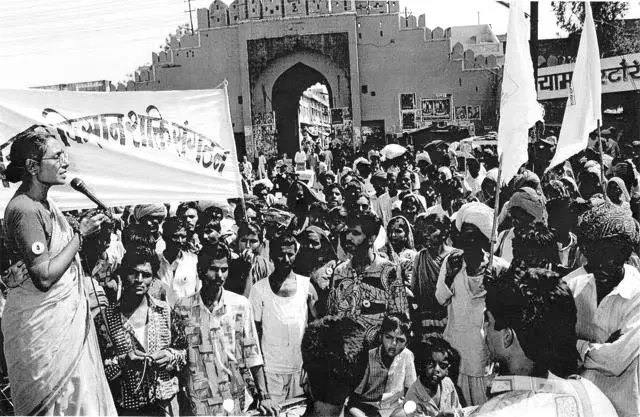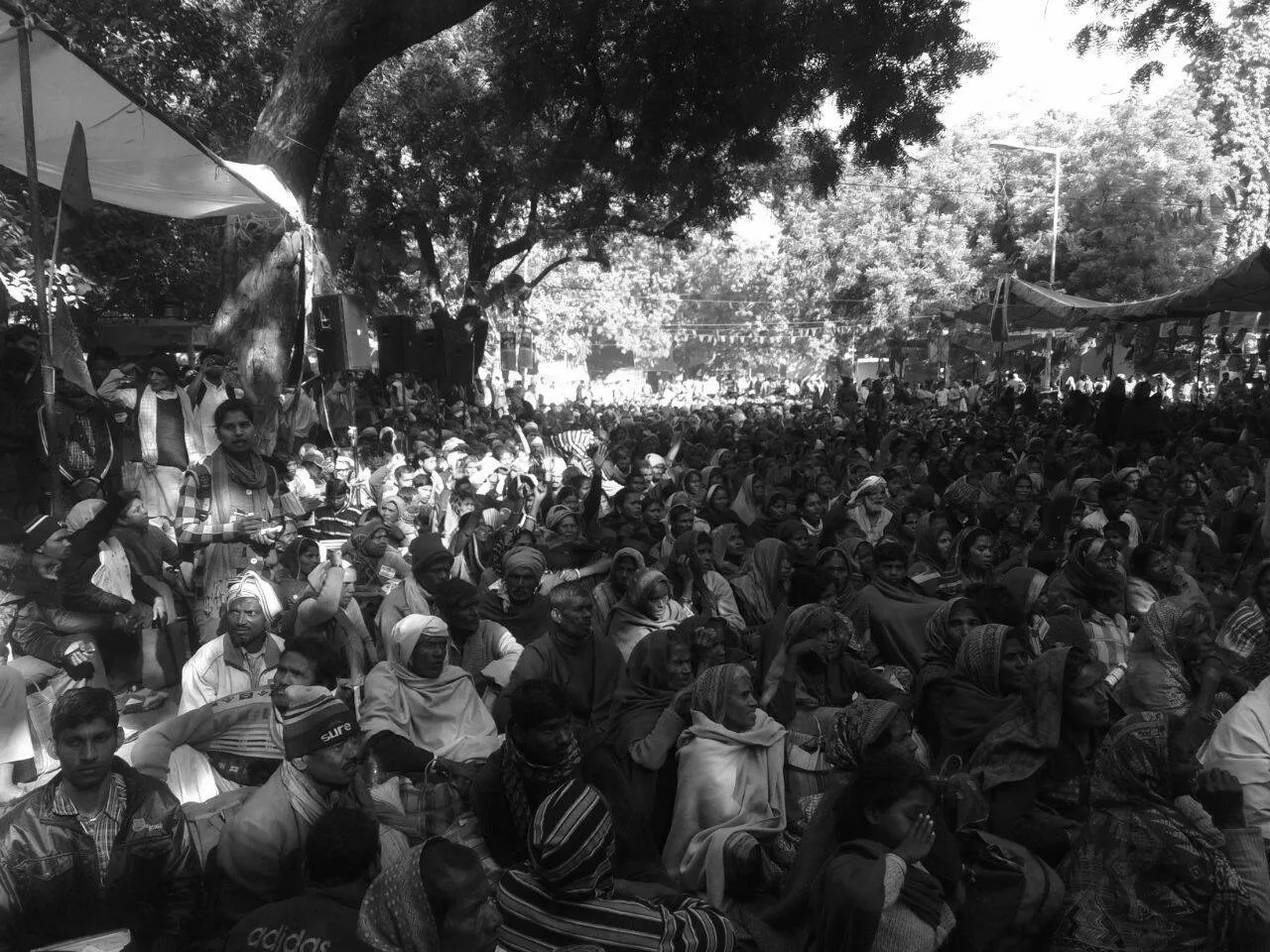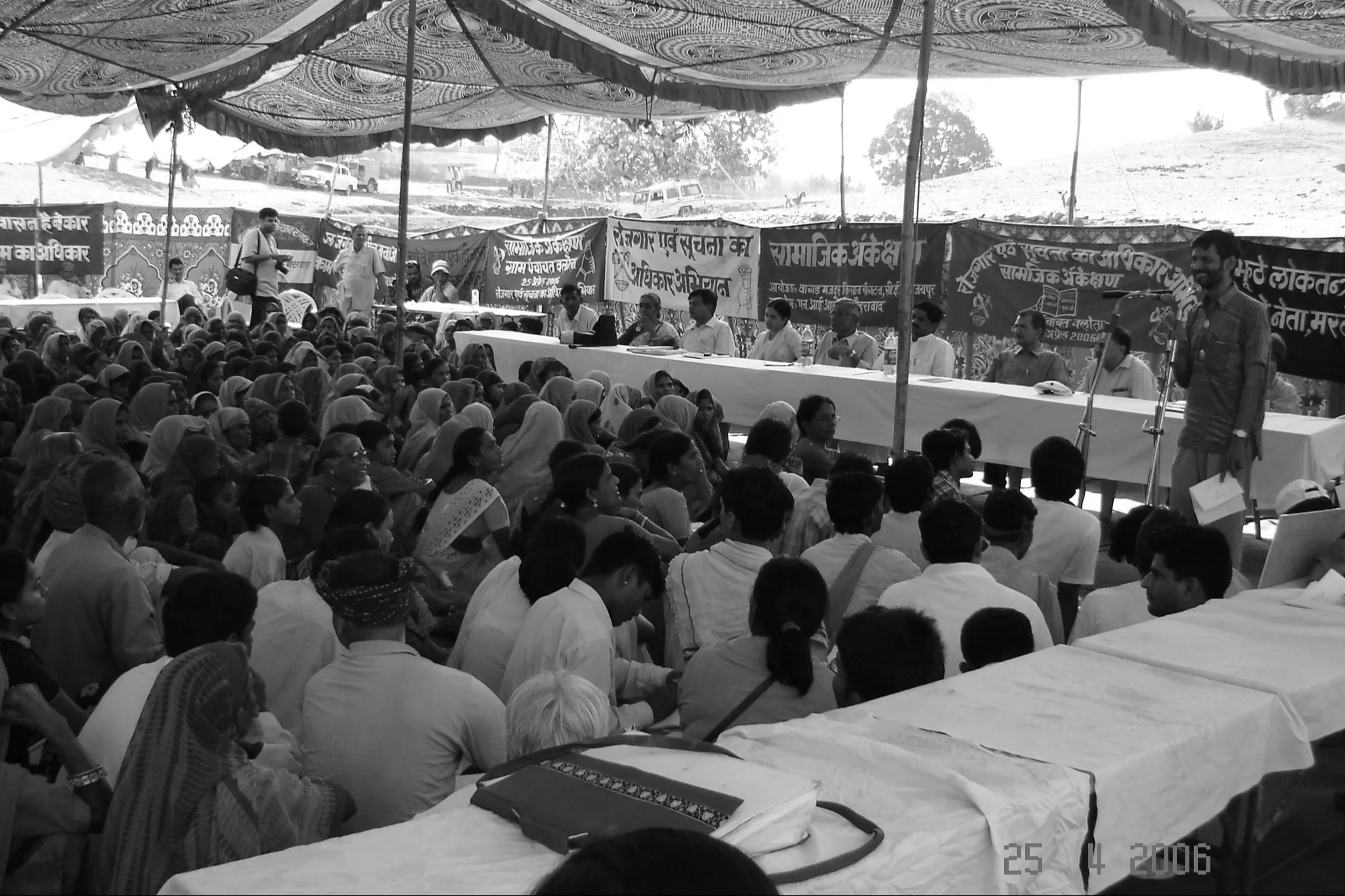
Right to Information: Remembering the Struggle, Renewing the Citizen’s Pledge
On RTI Day’s eve, MKSS honors 1996, renewing citizens’ pledge to question power and defend transparency with courage and dignity.
From Village Questions to a National Right
On the eve of RTI Day, MKSS gathered at Beawar’s Chang Gate to remember how citizens first asked to inspect muster rolls and ration records, and discovered their collective strength. Elders narrated jan sunwais where false entries were exposed; youth described filing applications and tracking replies. Volunteers explained timelines, fees, and appeal routes, while women’s groups led songs linking daily struggles with accountability. Speakers stressed that the Right to Information is a people’s achievement, not a gift from above. The evening ended with a pledge to keep asking difficult questions wherever public money and authority intersect, and to defend transparency
Key Points
- RTI emerged from grassroots demands to see records and verify public spending.
- Disclosure protects livelihoods: wages, rations, pensions, and local services.
- Citizens keep RTI alive by using it regularly and sharing learnings.
- Public authorities must serve, explain, and remain answerable.


Walking the Historic Route, Sharing Practical Tools
The march retraced the historic route from Chang Gate to Ajmeri Gate, carrying placards that asserted the people’s right to know. Along the way, volunteers distributed simple guides on how to draft RTI applications, request certified copies, and pursue first and second appeals. Booths demonstrated reading measurement books, checking muster roll entries, and comparing stock registers with ground realities. Participants shared examples from pensions, PDS, MGNREGA, and municipal works where timely disclosure protected wages and rations. The procession remained peaceful, dignified, and determined, reminding everyone that information is a public good and that institutions exist to serve, explain, and be
RTI Fair: Learn, Practice, and Strengthen Use
At the RTI Museum’s fair, exhibits will trace the journey from village questions to national law, featuring documents, photographs, and living archives. Hands-on clinics will help visitors frame precise questions, cite relevant sections, and avoid vague phrasing. A help desk will explain exemptions, proactive disclosure, and digital access, while sessions discuss delays, missing records, and strategies to escalate without confrontation. Community stalls will showcase current campaigns, from social audits to school monitoring, inviting people to adapt RTI to local needs. The fair’s simple message: use the Act regularly, share learnings, and keep the door of accountability open for every citizen.

Embedding Transparency in Everyday Governance
Looking ahead, MKSS reiterated that transparency must be embedded in everyday governance: muster rolls on worksites, ration stock on shop walls, budgets on notice boards, and decisions recorded and accessible. Technology can aid disclosure, but should not replace physical access for those without devices or connectivity. Citizens were urged to file applications collaboratively, verify responses on the ground, and report gaps openly. Public officials were invited to treat RTI as routine service, not inconvenience. Together, these practices sustain trust, reduce leakage, and strengthen democracy by ensuring that information flows to the last mile, where accountability is most urgently felt. Everyday.

